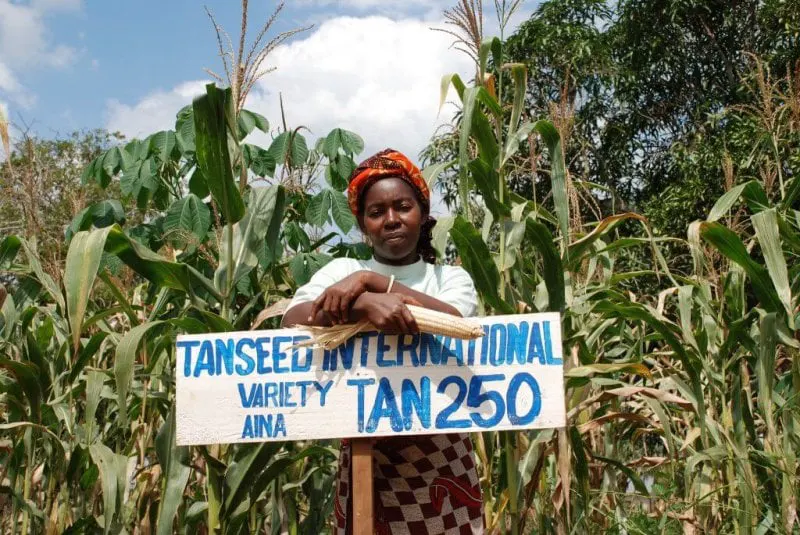Molecular breeding accelerates disease-resistant crop production—needed more than ever in developing world
Molecular breeding accelerates disease-resistant crop production—needed more than ever in developing world


To adequately confront rapidly changing plant pests and diseases and safeguard food security for a growing population, breeders — in collaboration with their partners — have to keep testing and applying new breeding methods to deliver resilient seed varieties at a much faster rate using minimal resources. Molecular markers are essential in this regard and are helping to accelerate genetic gains and deliver better seed to smallholders across sub-Saharan Africa in a much shorter timeframe.
…
“There are three stages in the use of molecular markers: discovery, validation and deployment,” [maize molecular breeder Manje Gowda] explains. “At the discovery phase, the objective is to find molecular markers associated or tightly linked with the trait of interest, while also assessing whether the trait is more complex or easier to handle with few markers for selection.”
The molecular markers identified at the discovery stage are validated in independent bi-parental or backcross populations, and the marker trait associations — which are consistent across different genetic backgrounds and diverse environments — are then moved to the deployment stage.
CIMMYT scientists have discovered several marker trait associations for crop diseases including maize lethal necrosis (MLN), maize streak virus (MSV), corn rust and turcicum leaf blight. All these trait-associated markers have been validated in biparental populations.
Read the original post

 | Videos | More... |

Video: Nuclear energy will destroy us? Global warming is an existential threat? Chemicals are massacring bees? Donate to the Green Industrial Complex!
 | Bees & Pollinators | More... |

GLP podcast: Science journalism is a mess. Here’s how to fix it

Mosquito massacre: Can we safely tackle malaria with a CRISPR gene drive?

Are we facing an ‘Insect Apocalypse’ caused by ‘intensive, industrial’ farming and agricultural chemicals? The media say yes; Science says ‘no’
 | Infographics | More... |

Infographic: Global regulatory and health research agencies on whether glyphosate causes cancer
 | GMO FAQs | More... |

Why is there controversy over GMO foods but not GMO drugs?

How are GMOs labeled around the world?

How does genetic engineering differ from conventional breeding?
 | GLP Profiles | More... |

Alex Jones: Right-wing conspiracy theorist stokes fear of GMOs, pesticides to sell ‘health supplements’




 Trust issues: What happens when therapists use ChatGPT?
Trust issues: What happens when therapists use ChatGPT? California, Washington, Oregon forge immunization alliance to safeguard vaccine access against federal undermining
California, Washington, Oregon forge immunization alliance to safeguard vaccine access against federal undermining Fighting deforestation with CO2: Biotechnology breakthrough creates sustainable palm oil alternative for cosmetics
Fighting deforestation with CO2: Biotechnology breakthrough creates sustainable palm oil alternative for cosmetics Viewpoint — Fact checking MAHA mythmakers: How wellness influencers and RFK, Jr. undermine American science and health
Viewpoint — Fact checking MAHA mythmakers: How wellness influencers and RFK, Jr. undermine American science and health 30-year-old tomato line shows genetic resistance to devastating virus
30-year-old tomato line shows genetic resistance to devastating virus The free-range chicken dilemma: Better for birds, but with substantial costs
The free-range chicken dilemma: Better for birds, but with substantial costs Viewpoint: Video — Big Solar is gobbling up productive agricultural land and hurting farmers yet providing little energy or sustainabilty gains
Viewpoint: Video — Big Solar is gobbling up productive agricultural land and hurting farmers yet providing little energy or sustainabilty gains ‘You have to treat the brain first’:Rethinking chronic pain with Sanjay Gupta
‘You have to treat the brain first’:Rethinking chronic pain with Sanjay Gupta
